A conversation exchanged between Jack Ma and Elon Musk: "You want to go to Mars? Actually, I am not interested in Mars, I just came back from there. I am more interested in Earth."
At the World Artificial Intelligence Conference (WAIC) 2019, Jack Ma, former executive chairman of Alibaba Group and the co-chair of the United Nations High-Level Panel on Digital Cooperation and Elon Musk, the co-founder and CEO of Tesla, exchanged ideas on technological development and the future of mankind.
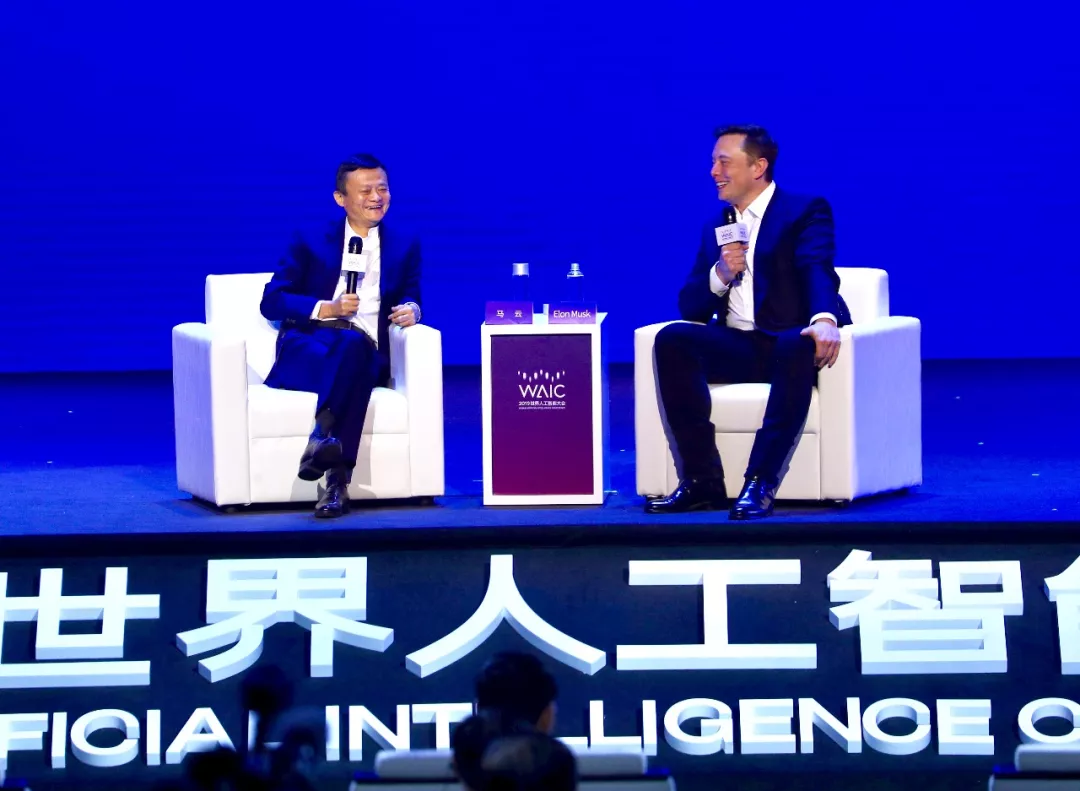
On Musk's plan to bring people to Mars, Jack Ma said, "Although it is a good idea to get humans to Mars, I am more interested in the lives of the 7 billion people on the Earth and how to make our planet more sustainable."
At this conference with the theme of "Intelligent connectivity, Infinite possibilities," Alibaba showed its AI strength, wining the highest level prize and published the AI whitepaper and the AI chip platform of Pingtouge.
The Pingtouge Semiconductor subsidiary of Alibaba launched the SoC chip platform "Wujian" (无剑, literally "No Sword" in Chinese, whose will be explained shortly). Wujian is an all-in-one chip design platform for Artificial Intelligence of Things (AIoT) scenarios that provides an integrated, all-in-one solution to chip architecture, equipped with basic software, algorithm, and development tools. It helps chip design companies reduce the cost by 50% and the design cycle by 50%.
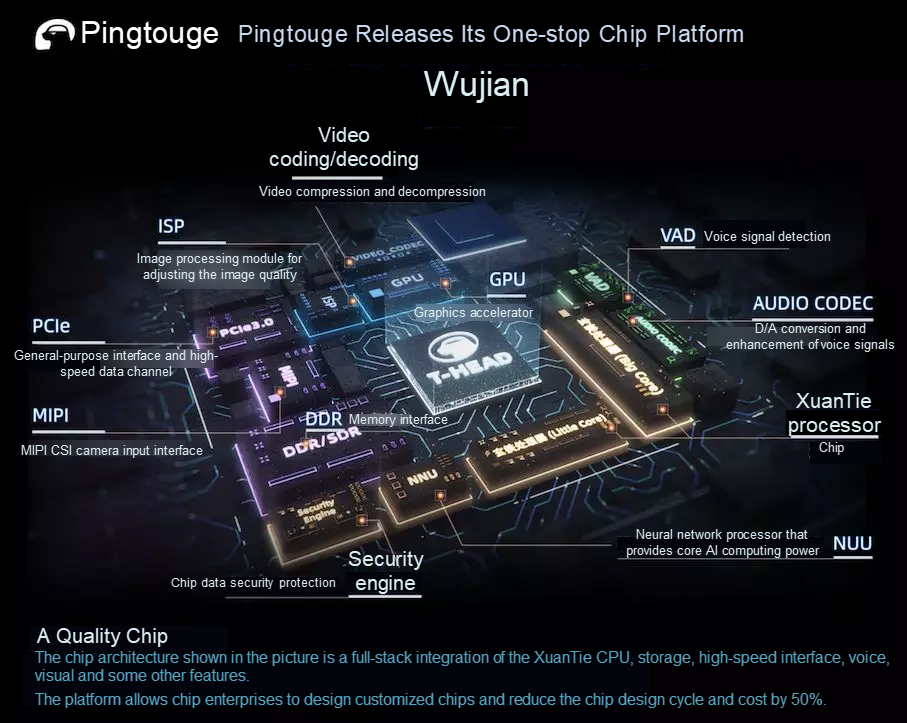
Wujian in many ways is a technological platform developed for system chips. It is composed of many modules such as the SoC architecture, processors, various IPs, operating systems, software drivers, and development tools. The Wujian platform undertakes about 80% of the general design workload of an Artificial Intelligence of Things (AIoT) capable chip, allowing chip-related R&D enterprises to focus on just figuring out that remaining 20% of the dedicated design work, specifically on reduce the R&D threshold of the system chips while also improving the R&D efficiency and quality. In other words, the Wujian platform makes making customized AIoT-capable chips that much more possible.
Now you might think why Wujian? What does that mean? The reason Alibaba choose the name Wujian (无剑, literally "No Sword") is because it alludes to a story in one of Louis Cha's beloved Chinese martial arts novels. The story goes like this: A character named Dugu Qiubai (独孤求败, literally meaning "the lone man who seeks defeat") uses a heavy sword made of dark steel (玄铁, or literally "mysterious iron") before the age of 40. But, on turning age 40, Qiubai gained great strength and craftsmanship so much so that he could use grass, wood branches, bamboo, or stones in place of a sword. That is, Qiubai learned that the best swordsman doesn't need to hold a sword. Alluding to this story, what Alibaba wants to say is that, by naming Wujian as Wujian ("No Sword"), the platform launched by Pingtouge can help chip manufacturers build the best chips with less R&D required. That is, given the dark steel built into the platform, it's so powerful that that chip manufacturer can be like Qiubai and achieve excellent swordsmanship without the need of a sword.
As the era of the Artificial Intelligence of Things (AIoT) era rolls on in, Pingtouge will continue to be dedicated at being a chip infrastructure provider in the AIoT era.
At the same time, Pingtouge also launched its Wujian visionary AI platform based on the Xuantie-series ("Black steel") high-performance CPUs. Equipped with storage bandwidth up to 400 Gbit/s and singe-channel PCIE interface bandwidth up to 16 Gbit/s, the platform supports edge AI computing lower than 16 TOPS. The platform has been used in products of multiple IoT vendors. The platform is open to intellectual property companies, drawing from the most competitive IP products in the world to implement prototype validation with the Wujian platform, which provides an integrated, silicon-proven, and mass-production chip-level solution.
In the future, Wujian will also launch SoC platforms targeting application fields such as MCU, industry, security, vehicle-mounted solutions, and access.
Also at the World Artificial Intelligence (WAIC) conference, Alibaba's Intelligent Cognitive Computing Platform won the highest-level SAL (Super AI Leader) award. In particular, Alibaba's intelligent cognitive computing platform AliGraph, which is based on the ultra-large graph neural network, won the Leading award.
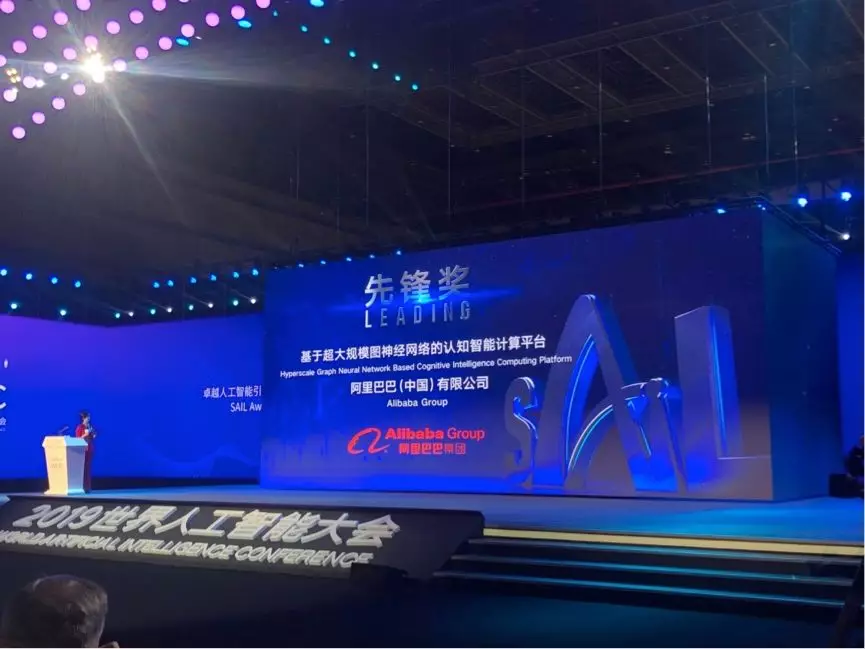
The Super AI Leader (SAIL) Awards consists of the four awards levels: Superior, Applicative, Innovative, and Leading, which are set up to give different awards. The Leading award is to recognize the winner for having AI theories, methods, models, or platforms that prove to be at the forefront of the industry.
AliGraph is a highly scalable distributed graph machine learning platform that supports heterogeneous training graph data with ten billion vertices and trillions of edges. AliGraph allows you to generate graphs in minutes.
With its complete description, computing, and data relation analysis, AliGraph is expected to grant the real inference ability to AI and push AI from "perception" to "cognition".
Currently, AliGraph has been deployed in the business system of Alibaba. After this technology is applied to Alibaba's largest e-commerce platform of Mobile Taobao, metrics such as click-through rate, conversion rate, and purchase amount in related business scenarios have been increased by 5%-90%.
AliGraph has also been applied to the PAI platform, making PAI the first platform that combines graph and deep learning. Users can create algorithm models based on this platform.
Also at the conference, Alibaba discussed a recent whitepaper publication on Artificial Intelligence titled "Chinese Enterprises through 2020: Practices and Trends of AI", which can be seen as an in-depth analysis and guide to the implementation of enterprise-level AI applications.
Up to now, Alibaba Cloud has already been applying AI in practical ways at large scale across several different industries. And based on the large number of industrial practices discussed in the whitepaper, Alibaba Cloud's research center analyzed the maturity of AI applications in Chinese enterprises and the evolution of AI in different stages, and summarized the seven patterns that can help enterprises create and implement their value, guiding enterprises to better employ artificial intelligence.
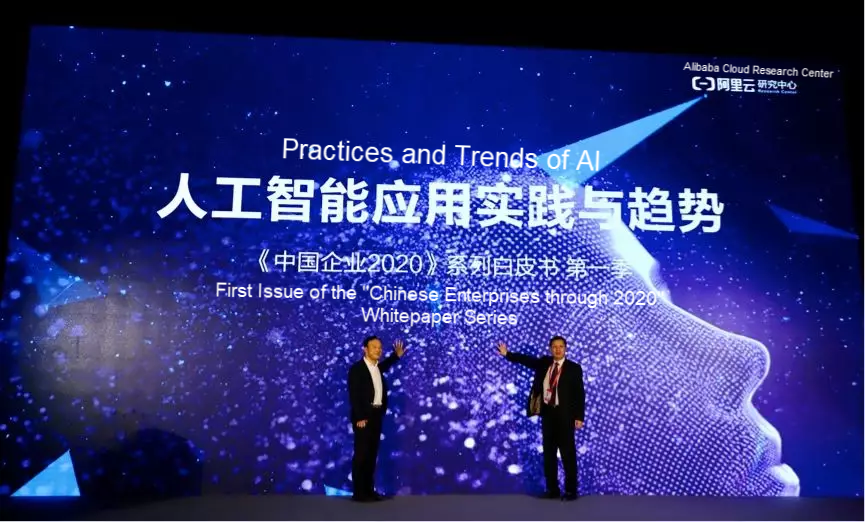
The seven patterns include support for mechanical, simple, and repetitive work, and beyond, creating new types of technological innovation and AI in the digital economy age. The whitepaper shows how data can be realized for innovative services and business processes and also shows how there are many potential areas for innovation in many different industries and sectors—well beyond the tech space.
In the exhibition area of the World Artificial Intelligence (WAIC) conference, Alibaba displayed a variety of cutting-edge technological innovations and creations, including the chips and chip platforms made by Pingtouge, tools for the intelligent interpretation of remote sensing images by Alibaba's DAMO Academy, as well as Alibaba's smart speaker Tmall Genie, voice-controlled subway ticketing, and many, many, other things including the digital government platforms supported by Alibaba Cloud, Alibaba Cloud's City Brain, and Ant Blockchain all pictured below.
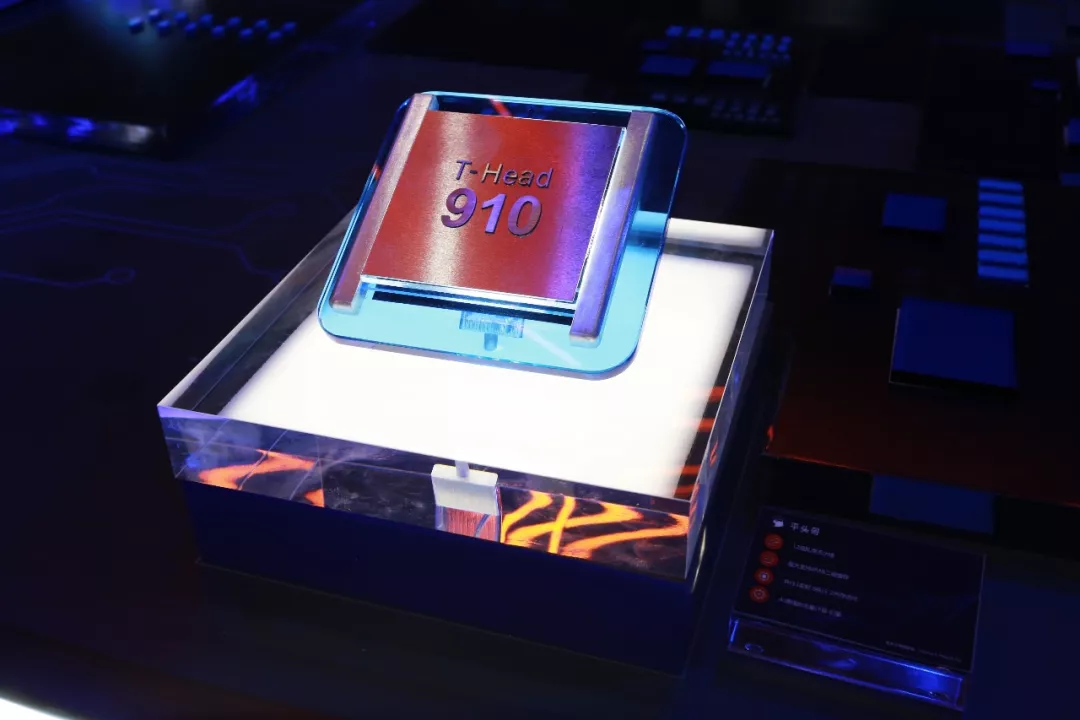
Pingtouge's XuanTie-910 chip
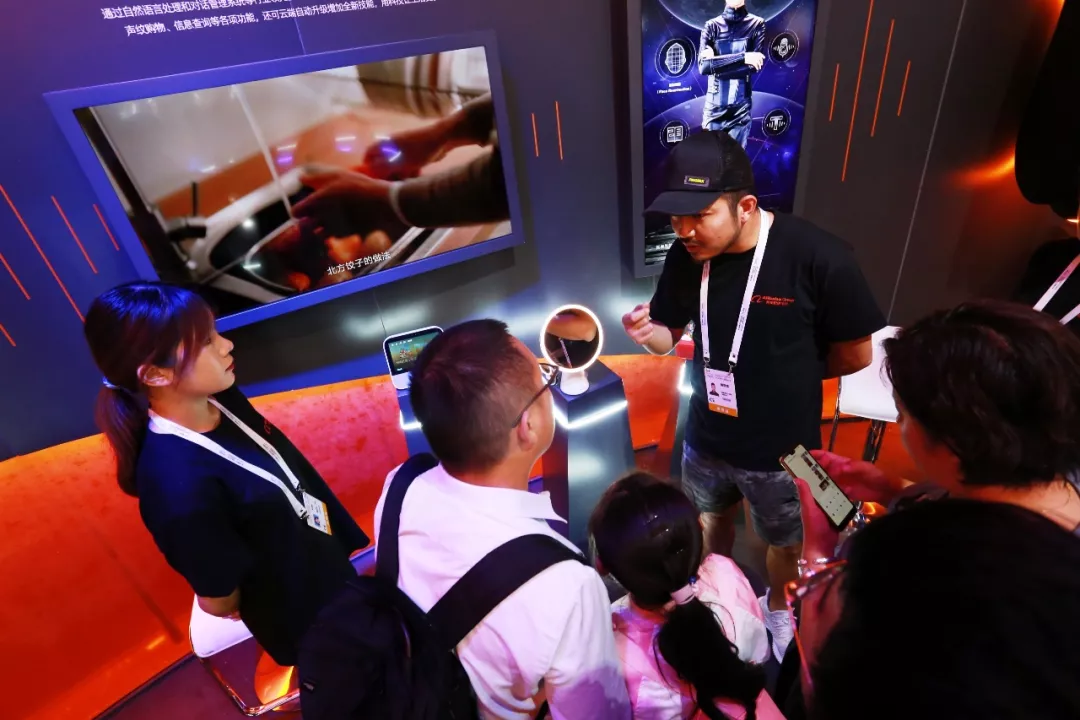
Alibaba's smart speaker Tmall Genie
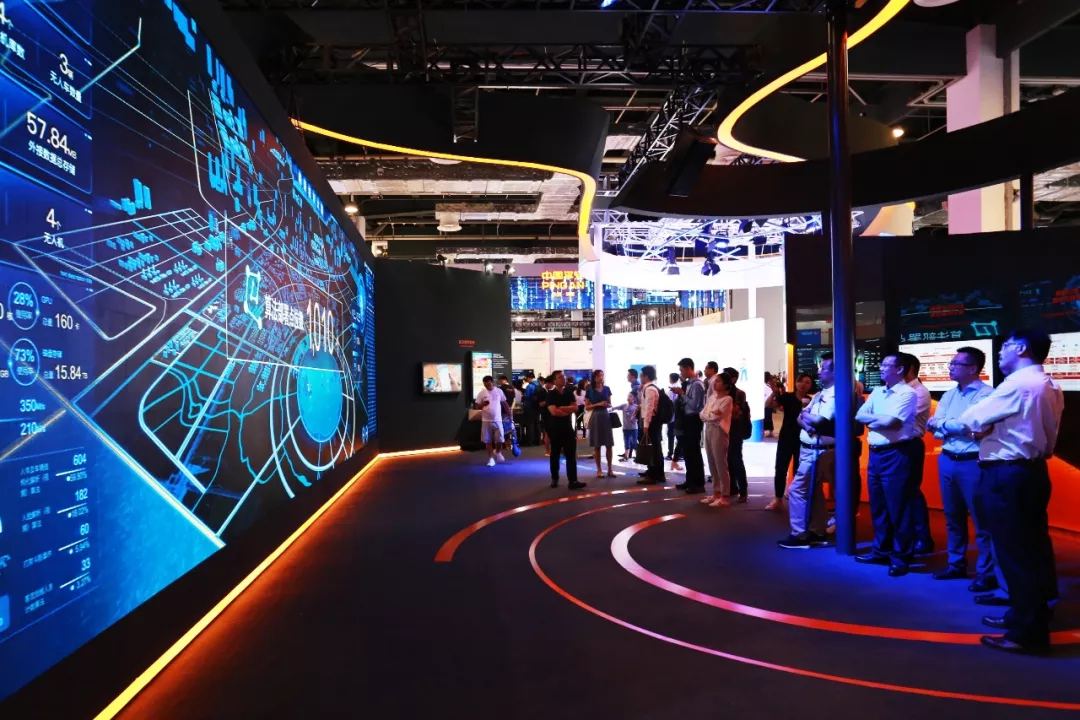
Alibaba Cloud's City Brain project
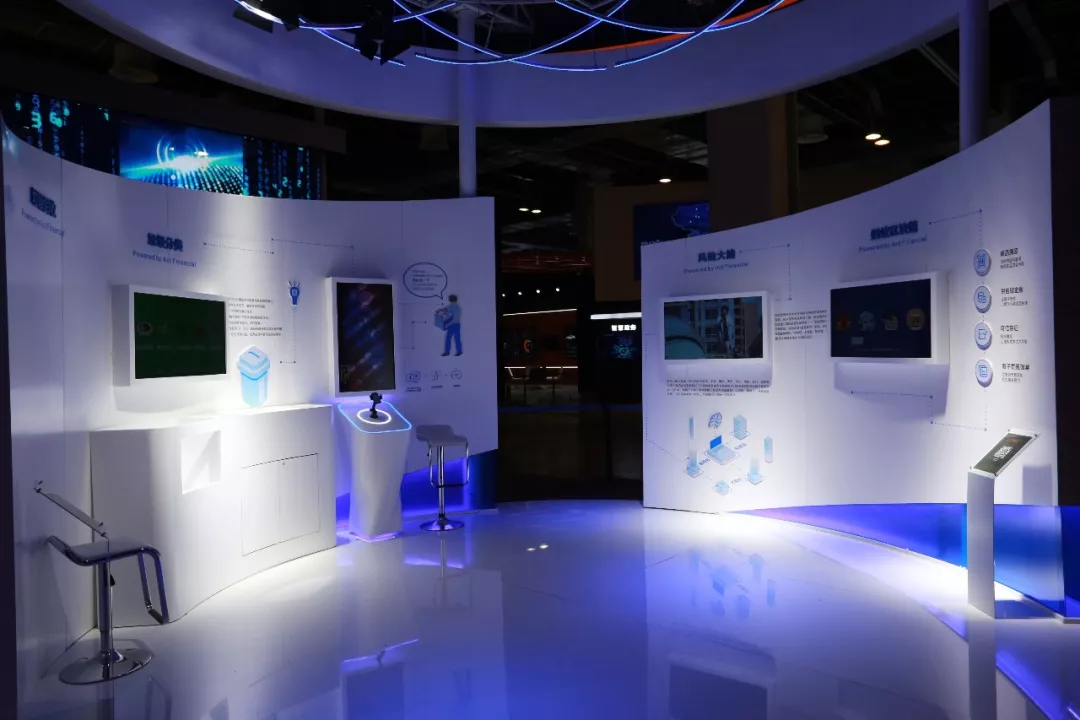
Ant Financial's risk control brain and blockchain
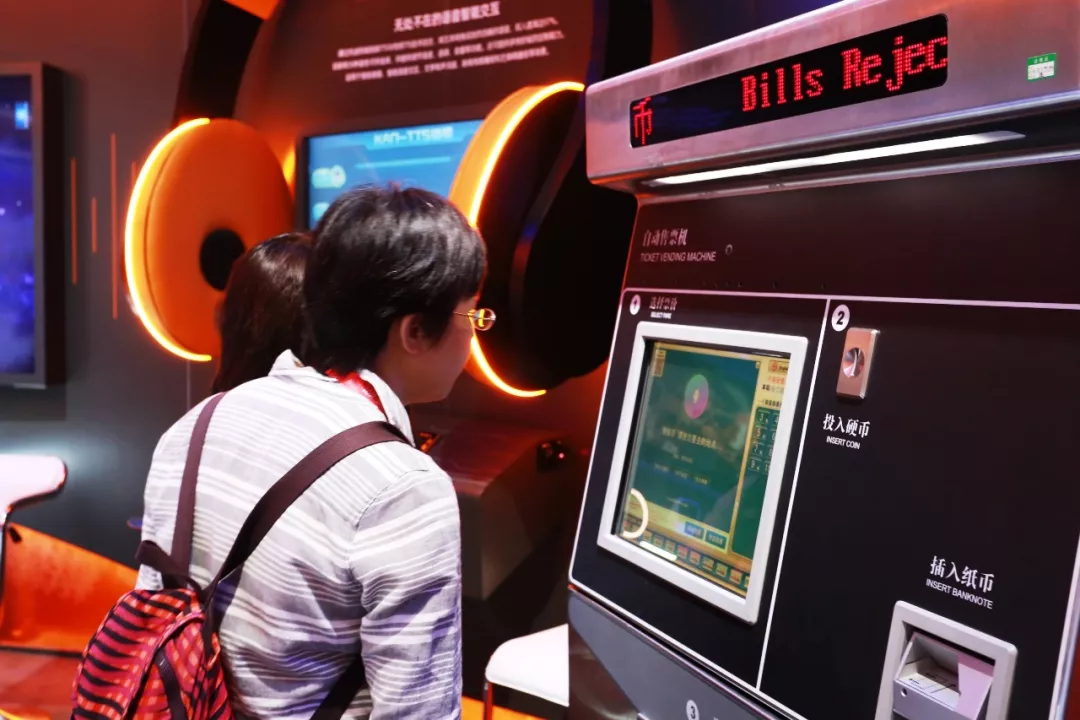
Voice-controlled subway ticketing machine
Besides all of this, at the Tank Shanghai art center in Shanghai, Alibaba worked with Shanghai's West Bund Group to create a new world of fairy tales by employing several different artificial intelligence applications—pictured below. Among these, Aladdin's magic lamp, the Magic Mirror, and Somersault Cloud (which is Chinese is jindouyun (筋斗云), refers to the ability of the Monkey King (Sun Wukong), coming from the Chinese classic Journey to the West, to travel long distances on a cloud) make for an enchanted journey. Next, Ant Forest along with interesting installations of human-and-machine interactions, AI sentiment recognition sensors, and several holograms will leave any visitor to the art center with a lasting impression.
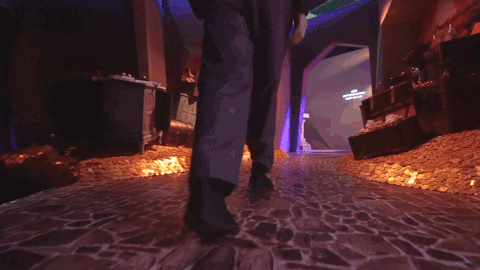
Experience the world of Aladdin and the Magic Lamp
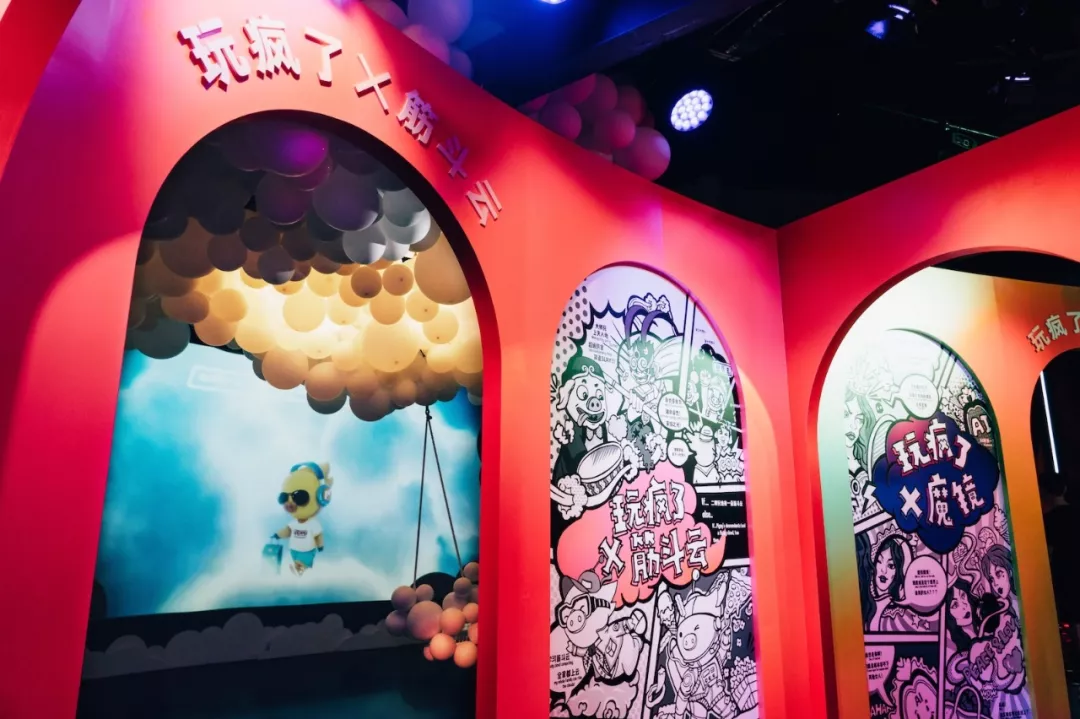
Have your own Somersault Cloud

Fly on Somersault cloud around the world
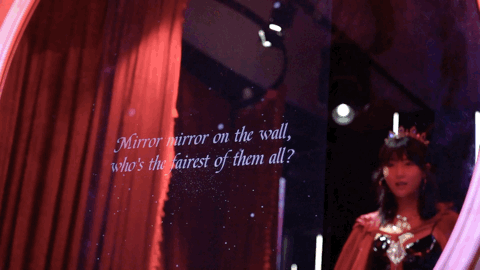
Powered by the AI sentiment recognition, the Magic Mirror understands your emotions
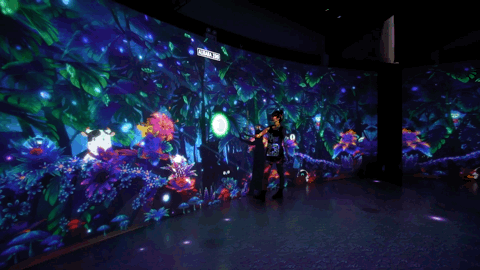
The hologram technology shown here allows you to play hide-and-go-seek with adorable critters in the Ant Forest and Alibaba Zoo
Alibaba Cloud's Worldwide Launches Next-Gen ESSDs, Built for AIoT
Unlocking the Power of Alibaba's Machine Translation Service with JMS, HTTP and MQTT

2,597 posts | 773 followers
FollowAlibaba Clouder - October 28, 2019
Alibaba Clouder - June 11, 2019
Alibaba Clouder - January 8, 2021
Alibaba Clouder - October 28, 2019
Alibaba Clouder - September 2, 2020
Alibaba Clouder - April 29, 2020

2,597 posts | 773 followers
Follow AI Acceleration Solution
AI Acceleration Solution
Accelerate AI-driven business and AI model training and inference with Alibaba Cloud GPU technology
Learn More Tongyi Qianwen (Qwen)
Tongyi Qianwen (Qwen)
Top-performance foundation models from Alibaba Cloud
Learn More Offline Visual Intelligence Software Packages
Offline Visual Intelligence Software Packages
Offline SDKs for visual production, such as image segmentation, video segmentation, and character recognition, based on deep learning technologies developed by Alibaba Cloud.
Learn More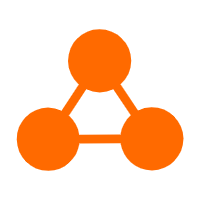 Network Intelligence Service
Network Intelligence Service
Self-service network O&M service that features network status visualization and intelligent diagnostics capabilities
Learn MoreMore Posts by Alibaba Clouder
Start building with 50+ products and up to 12 months usage for Elastic Compute Service
Get Started for Free Get Started for Free